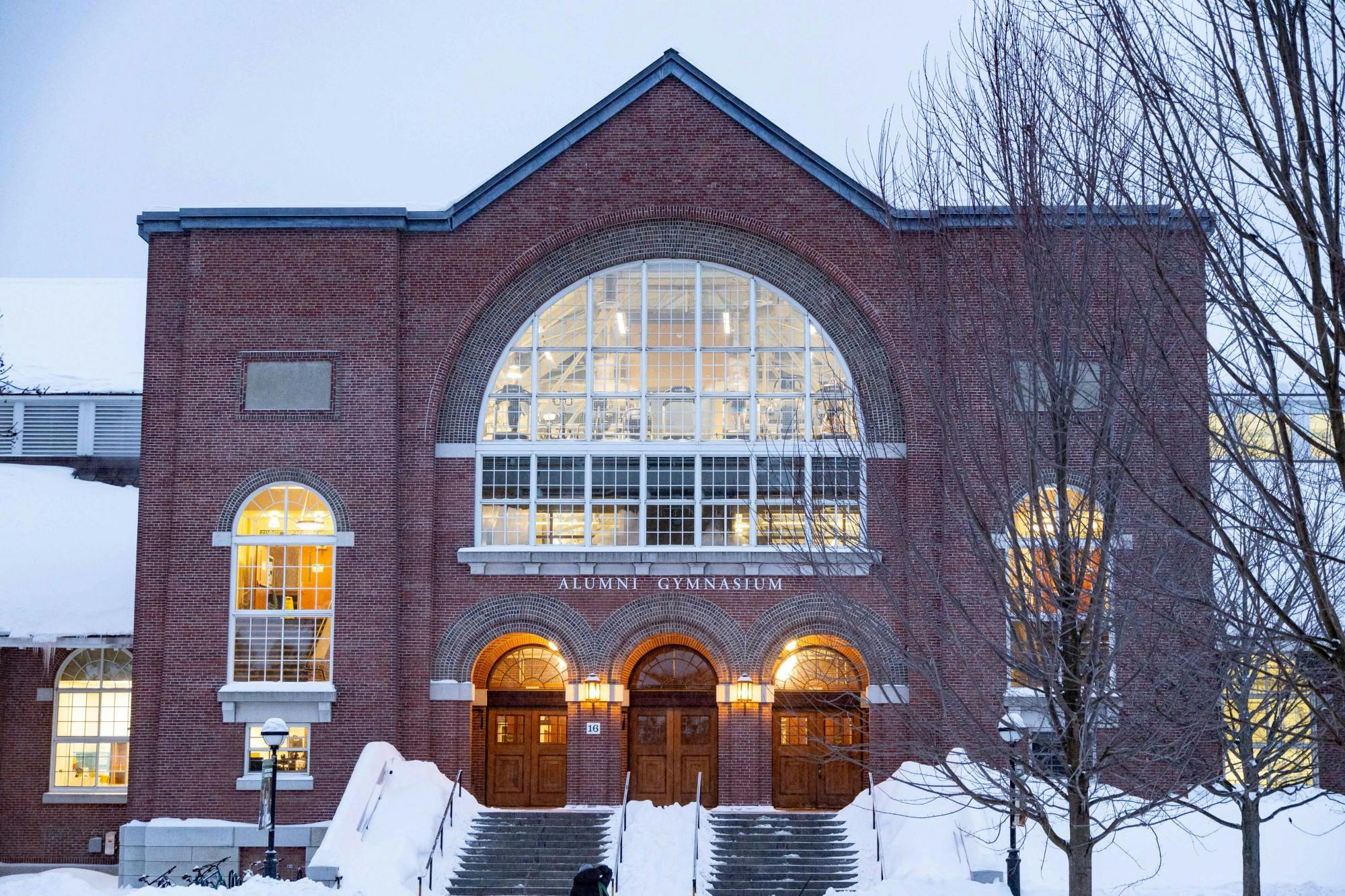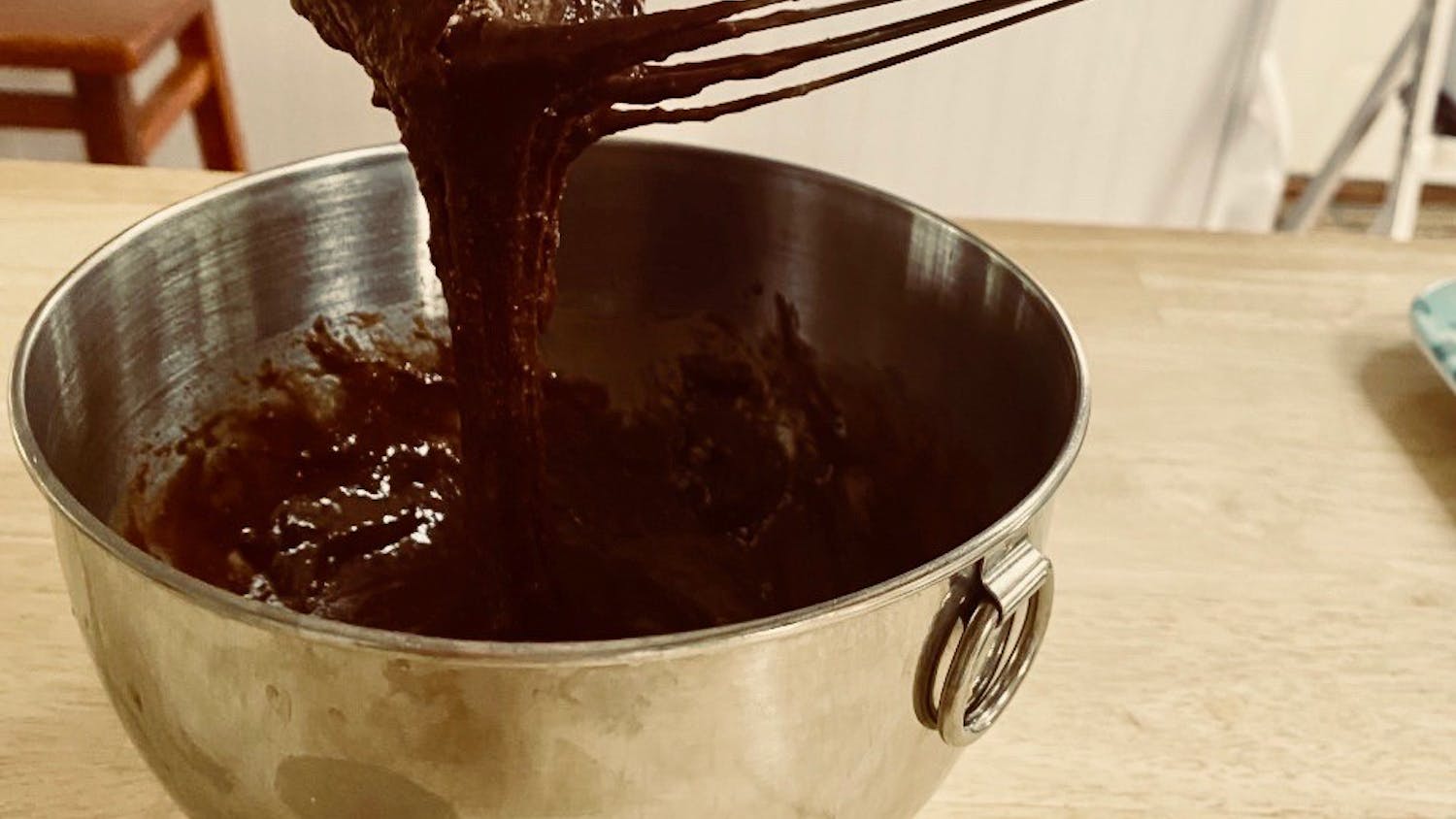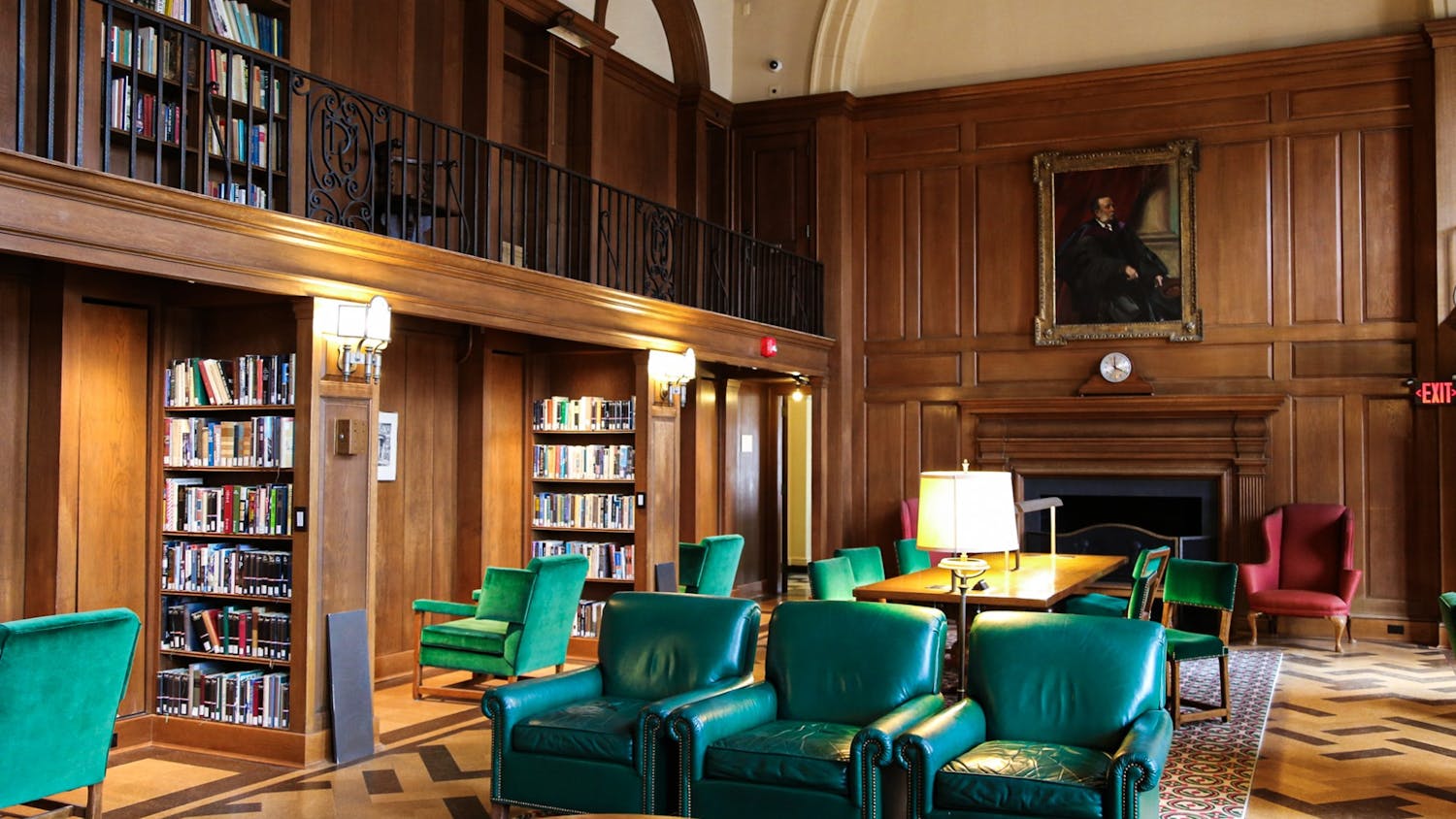If you're anything like me, this term has been a pernicious cycle of two extremes: eating an entire family-sized bag of PopCorners in one TikTok-fueled sitting, and then shamefully running five miles in repentance.
Some of us are using quarantine as a chance to take a break, relishing newfound time for binging Netflix guilt-free, painting with Bob Ross and baking blueberry pies — no one will see our summer bodies anyway. Others are adapting their Alumni Gymnasium and Floren Varsity House trips at home, turning to online trainers and fitness influencers for guidance and inspiration.
In incredibly stressful, anxiety-ridden times, exercise can provide us with a sense of structure, relief and relaxation. Whether it’s doing Zoom yoga sessions, trying out a new HIIT workout or running in the neighborhood, releasing endorphins and increasing blood flow is just as important for our mental health as it is for our physical well-being.
This week, I talked to students about working out in quarantine: how exercise has benefited them, challenged them and changed for them.
Sophia He ’23 started the term off with no fitness plans. On campus, constrained by an abundance of commitments, she hadn’t felt motivated to follow through with regimented workouts. When quarantine started, however, her friends encouraged her to join their workout plans — the “Murph” CrossFit challenge — using spreadsheets and group chats to maintain accountability.
“[Working out regularly] is definitely not normal for me. At the beginning, I mainly exercised because my friends were pressuring me to,” He said. “But even after some of my friends stopped doing the workouts, I kept doing them because I started feeling stronger and became intrinsically motivated.”
Even while taking four classes, He has found that she has been able to work out consistently and manage her course load effectively. Her newfound energy and overall improved physical health have made her reconsider prioritizing exercise once she’s back on campus.
Motivated by sheer boredom or the desire to finally obtain discernable abs, Dartmouth students are joining the social media craze that is lockdown fitness. However, our fixation on improving our outward appearances — even when most of us aren’t being seen — points toward a broader conflict between productivity and futility in isolation.
In our hyperproductive society, pressures to be our skinniest, strongest and fittest selves — even in the midst of a global crisis — are not surprising. But as we grapple with the emotional fallout of quarantine, approaching this “glow up” season with patience and self-forgiveness is crucial.
“Some of my friends were 100 percent motivated by the idea of glowing up,” He said. “While I work out for myself now, at the outset, sharing goals with others and having people hold me accountable was very helpful.”
On TikTok, the viral #coronaglowup tag has generated over 5.5 million views as of late May. While the term “glow up” has often referred to holistic transformations — encompassing lifestyle changes and mental and physical maturation — it has recently become more one-dimensional, attesting solely to the aesthetic side of self-improvement.
When stay-at-home orders were first announced, YouTube experienced a more than 200 percent increase in global average daily views of videos titled “workout at home.” Instagram and Facebook are brimming with creative substitutes for traditional fitness equipment, and group workout favorites from Orangetheory Fitness to SoulCycle are now online.
Dartmouth students have even found fitness inspirations among their own peers. Momi Tolentino ’20 and Ariana Ramsey ’22 have both established fitness pages on Instagram, creating videos and social media challenges in efforts to educate and encourage people to stay healthy and active.
For Ramsey, a member of the women’s rugby team, working out in quarantine has posed many challenges to increasing her physical strength. Despite being provided with at-home workouts from her coaches, Ramsey still finds the replacements somewhat inadequate.
“I feel like I’m losing a lot of muscle because I can’t lift heavy weights. I can still train on the field, but I’ve had to be more creative with other workouts and exercises,” Ramsey said.
Tolentino, a frequent gym-goer, has also had to adapt her workout routine in lockdown.
“Without equipment, it’s been trying to be innovative and find ways to make workouts harder,” Tolentino said. “I definitely felt a shift between doing more muscle-building exercises to doing more toning and cardio.”
While motivation has been hard without her team physically present, Ramsey noted that her fitness page has helped keep herself accountable.
“I want people who don’t usually work out to have some basic guidelines for things they can do at home,” she said. “I also want to motivate people on my timeline to stay active by sharing workout videos and field sessions.”
Exercise can also foster remote connections and new spaces for community building. Like Ramsey, Tolentino has become more active on social media; during the month of May, Tolentino started a 30-day squat challenge on Instagram for her friends to follow.
“Before this term started, a lot of people had reached out to me, and I wanted to still help people and share fitness tips through social media, even in quarantine,” Tolentino said. “My content has become more structured because I now have a community that is relying on me to keep up.”
In the absence of physical workout buddies, students have found alternative avenues of accountability. Having fewer distractions has allowed us to focus on our well-being; impediments to traditional workouts have encouraged innovation and adaptation. In the confines of our living rooms and backyards, we have discovered new sources of motivation and community.
Neither Tolentino nor Ramsey promises rapid results. Instead, they focus on empowerment — finding creative ways to grow, even in difficult circumstances. Maybe that’s what a healthy #coronaglowup should really be about.




